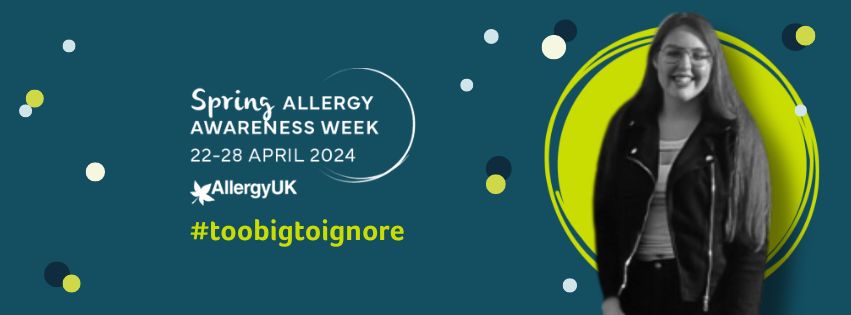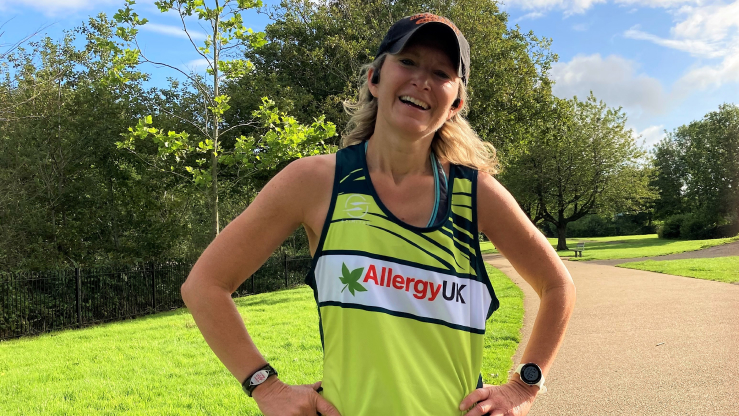
Samantha's Story: Living with a Food Allergy
Allergy Awareness Week 2024I discovered my allergy at a young age during a shopping trip and a small piece of walnut cake when I was just 4 years old. Almost immediately, I had sharp stomach pains. My mother, a nurse, initially reassured me, but when my symptoms worsened, she realised I was experiencing anaphylaxis.
I vividly remember coughing a lot, and it felt like a boa constrictor was around my neck. Every breath was much harder than the last. Rushed to the hospital by ambulance, I was diagnosed with a severe tree nut allergy and have carried Epi-Pens everywhere since. Throughout my childhood, I had annual check-ups, and although I was once offered challenge testing, my allergy was deemed too severe to proceed. After turning 16, I had to accept that my allergy was here to stay, and in fact, it just kept changing.
Daily life became a series of challenges. Food shopping is a meticulous task, with allergen labels requiring constant scrutiny. Avoiding items labelled “may contain” or “produced in a factory that handles” limits my choices. Simple meals require strategic planning across different stores. Ordering food online adds another layer of frustration, with incorrect allergen labelling leading to wasted food. There have been times when £10-20 of a food shop can’t be eaten.
Going to restaurants is not as easy as deciding where and booking a table. It requires careful selection, reviewing allergen menus and determining how safe I would be when dining. Things that help me feel safe are a good reputation, an in-depth allergens menu, e.g. including ‘may contain’, and good allergen training and understanding.
Living with others when heading to university presented challenges. Transitioning from a supportive family environment to people who cannot fully fathom the severity of a food allergy. Most people think I am being pedantic when I ask them not to use my kitchen utensils or clean their dishes with a different sponge. It very quickly became difficult to be safe in my own house. But outside of the safety aspect, I also feel rude. It is common in university to make dinners/shop together, but I have to refuse because most people cannot or simply will not check for allergens.
Allergy has impacted my mental health. I have experienced a lot of anxiety, sometimes even manifesting symptoms of a panic disorder. I have a habit of setting timers at restaurants when my food arrives. After 10 minutes, I begin to feel reassured that I won’t have an allergic reaction. I also experience guilt when I say no to food-related gifts or explain why I can’t go to certain restaurants. I worry others would rather not spend time with me because even something as simple as going for a coffee can be difficult.
Receiving unwanted comments about my allergy is not uncommon. People have questioned the legitimacy of my allergy because I avoid/do not avoid something someone else they know with an allergy does. Many people do not seem to understand how allergies differ from person to person and, therefore, think I am lying about the severity of my own allergy. Some people have compared me to others, making comments about how my allergy is not ‘that bad’ because someone else they know is allergic to X, Y, Z etc. Allergies are not a competition. A person doesn’t deserve less care or understanding because someone else is perceived to have a more severe allergy. This wouldn’t be said about other medical issues; it shouldn’t be said about allergies.
Sign Up For More Information
It is important to Allergy UK that we can engage with all people that are affected by allergic disease
Join our mailing list





 Helpline
Helpline